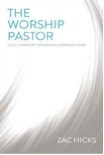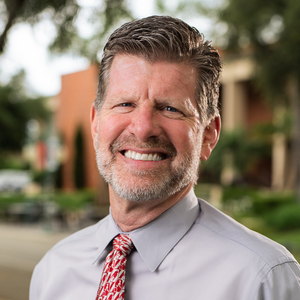 Recently, I learned of a book, and for some reason I felt like I knew the author. So I did some searching and found the website for the church where the author now serves. His bio confirmed the connection. He had graduated from şÚÝ®ĘÓƵ with a B.A. in Music in 2002 . Since the town I call home (Birmingham, Alabama) is where his church is located, I decided to pick up the book, flip through it, and then get together with him so I could congratulate him on his book. For no particular reason, I was not really expecting to benefit from reading the book. My goal was simply to be an encouragement to one of our graduates.
Recently, I learned of a book, and for some reason I felt like I knew the author. So I did some searching and found the website for the church where the author now serves. His bio confirmed the connection. He had graduated from şÚÝ®ĘÓƵ with a B.A. in Music in 2002 . Since the town I call home (Birmingham, Alabama) is where his church is located, I decided to pick up the book, flip through it, and then get together with him so I could congratulate him on his book. For no particular reason, I was not really expecting to benefit from reading the book. My goal was simply to be an encouragement to one of our graduates.
But I did not just flip through the book. I found myself reading each chapter closely because this book was thoughtful, well-written, informative, and full of wise and reflective teaching. I think that Zac Hicks has written a book that worship pastors everywhere need to read. So I decided to let him give you his own thoughts about this book. This blog is an interview with Zac Hicks, the author of . I have asked him to answer five questions, which I believe you will find helpful. More importantly, I hope you will feel compelled to read his book and learn from him.
Zac, tell us about your background. When did you become interested in leading worship?
I’m not trying to sound promotional here, but leading worship became an interest for me while studying music and the Bible at Biola. I grew up in a wonderful church in Honolulu, Hawaii, had begun leading worship for my student ministry as a teenager, and somehow by God’s grace made it into the conservatory (I was a late bloomer musician). I took a church music class with (now retired) Dr. William Lock that exposed me for the first time to the deeper issues of worship—theology, ecclesiology, eschatology, etc. I’ve been reading, writing, and conversing about worship ever since.
You have recently written a book entitled The Worship Pastor. How would you respond to someone who asks, “Why do we need a book on leading worship and pastoring?”
There’s been a lot of good material published out there. But to date, I haven’t seen anything longer than an article or maybe a chapter devoted to the pastoral nature of worship leading. I can’t tell you how many young worship leaders I’ve talked to over the last 5-10 years who are sick of the rock star model. And I can’t tell you how many other older worship leaders and church musicians I’ve talked to who have said that their ministry lacks vision and purpose. I was on a podcast recently where the host (a theologically informed fellow) pointed out, by using a phrase of Karl Barth, that my book was a work of “irregular dogmatics”—it was a systematic theology of the pastoral art and practice of worship leading. The worship book world is now (thankfully) saturated with decent theologies of worship, and compelling popular-level, devotional material to deepen your worship life. But to my knowledge, no other book has attempted to synthesize all the wonderful tidbits of theological reflection on the pastoral vocation of the worship leader. The Worship Pastor is my attempt to do just that.
How did you come up with the structure for this book?
Each chapter is a kind of self-contained metaphor that offers an imaginative description of a particular dimension of worship pastoring: “Theological Dietician,” “War General,” “Corporate Mystic,” “Mortician,” to name a few. Several years ago, really for my own personal reflection and edification, I began taking notes on what pastoring through worship leading looked like. Ideas would come from all sorts of directions—books, articles, blog posts, or just Spirit-filled encounters while ministering in the trenches of local church ministry. The more I returned to these notes, the more I observed patterns and “families” of ideas. I reorganized them, had many conversations with people smarter than myself, and all these metaphors eventually emerged as helpful titles to house all these pastoral thoughts.
Who are the people or what are the experiences which have shaped you as a worship leader?
My parents, as faithful, passionate worshipers, were my first and enduring example of what the worshipful life looks like. Watching them in worship, week in and week out, has probably shaped my heart and passion for gathered corporate worship more than anything else.
Biola was a big moment for me. Between the church music class I mentioned above and the Bible courses that taught me how to read and study the Scriptures, my worshipful passion for the theology and doxology was ignited there, in college.
All throughout these times, and on into seminary, I was going here and there, leading worship in local churches, jumping into internships. One particular early internship at Irvine Presbyterian Church shaped my passion for hymns, liturgy, and the rich tradition of worship handed to us down through the ages. The sincerity and passion with which they engaged traditional, liturgical worship was moving and powerful—nothing short of charismatic for me.
But, as a developing worship leader, nothing has shaped me more than the blessed grind of serving in the local church. I’ve probably been shaped more by my mistakes than my victories. I think I’ve made every mistake in the book, and I can probably look at The Worship Pastor, with all its positive affirmations, as the flip side of many worship leading failures I’ve encountered. Thankfully, God graciously allowed me to serve churches that put up with me and didn’t kick me out.
In closing, what do you hope readers will take away from reading your book?
I hope readers will understand that, in worship, the stakes are high. I hope that worship leaders will read my book and feel convicted about their pastoral task. I hope that worshipers will read it and be inspired by the cosmic, soul-shaping vision the book attempts to offer. I hope that non worship-leading pastors will more readily see their worship leaders as fulfilling pastoral functions in the church…and let the dominoes fall from there.
But honestly, more than anything I hope readers hear the gospel of Jesus Christ, which permeates, punctuates, dictates, and dominates every chapter of The Worship Pastor. May that “power of God unto salvation” electrify the church’s worship for a new generation.
 şÚÝ®ĘÓƵ
şÚÝ®ĘÓƵ
.jpg)


